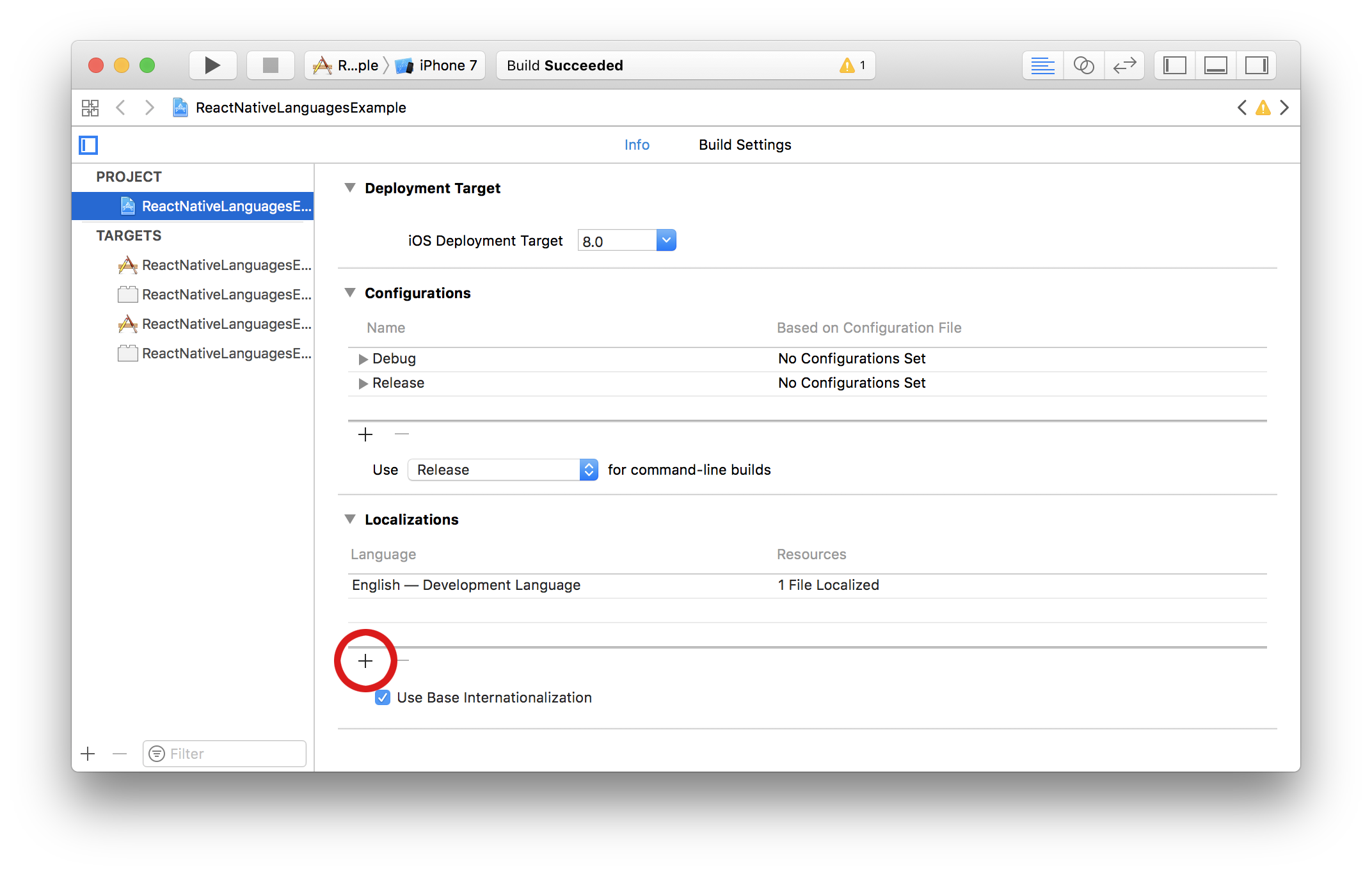Package Exports
- react-native-localize
This package does not declare an exports field, so the exports above have been automatically detected and optimized by JSPM instead. If any package subpath is missing, it is recommended to post an issue to the original package (react-native-localize) to support the "exports" field. If that is not possible, create a JSPM override to customize the exports field for this package.
Readme
🌍 react-native-localize
A toolbox for your React Native app localization.
⚠️ Breaking change
This project was known as react-native-languages and has been renamed to reflect new APIs possibilities.
Find more informations about this change here.

Support
| package name | version | react-native version |
|---|---|---|
| react-native-localize | 1.0.0+ | 0.56.0+ |
| react-native-languages | 2.0.1 | 0.48.0 - 0.55.4 |
Installation
Using yarn
$ npm install --save react-native-localize
# --- or ---
$ yarn add react-native-localizeLinking
Using react-native-cli (recommended)
$ react-native link react-native-localizeManual (iOS)
- In the XCode's "Project navigator", right click on your project's Libraries folder ➜
Add Files to <...> - Go to
node_modules➜react-native-localize➜ios➜ selectRNLocalize.xcodeproj - Add
RNLocalize.atoBuild Phases -> Link Binary With Libraries
Manual (Android)
- Add the following lines to
android/settings.gradle:
include ':react-native-localize'
project(':react-native-localize').projectDir = new File(rootProject.projectDir, '../node_modules/react-native-localize/android')- Add the compile line to the dependencies in
android/app/build.gradle:
dependencies {
// ...
compile project(':react-native-localize')
}- Add the import and link the package in
MainApplication.java:
import com.reactcommunity.rnlocalize.RNLocalizePackage; // <-- Add the RNLocalize import
public class MainApplication extends Application implements ReactApplication {
// …
@Override
protected List<ReactPackage> getPackages() {
return Arrays.<ReactPackage>asList(
new MainReactPackage(),
// …
new RNLocalizePackage() // <-- Add it to the packages list
);
}
// …
}Basic usage example
import * as RNLocalize from "react-native-localize";
console.log(RNLocalize.getLocales());
console.log(RNLocalize.getCurrencies());
RNLocalize.addEventListener("change", () => {
// do localization related stuff…
});API
getLocales()
Returns the user preferred locales, in order.
Method type
type getLocales = () => Array<{
languageCode: string;
scriptCode?: string;
countryCode: string;
languageTag: string;
isRTL: boolean;
}>;Usage example
console.log(RNLocalize.getLocales());
/* -> [
{ countryCode: "GB", languageTag: "en-GB", languageCode: "en", isRTL: false },
{ countryCode: "US", languageTag: "en-US", languageCode: "en", isRTL: false },
{ countryCode: "FR", languageTag: "fr-FR", languageCode: "fr", isRTL: false },
] */getCurrencies()
Returns the user preferred currency codes, in order.
Method type
type getCurrencies = () => Array<string>;Usage example
console.log(RNLocalize.getCurrencies());
// -> ["EUR", "GBP", "USD"]getCountry()
Returns the user current country code (based on its device locale, not on its position).
Method type
type getCountry = () => string;Usage example
console.log(RNLocalize.getCountry());
// -> "FR"getCalendar()
Returns the user preferred calendar format.
Method type
type getCalendar = () => "gregorian" | "japanese" | "buddhist";Usage example
console.log(RNLocalize.getCalendar());
// -> "gregorian"getTemperatureUnit()
Returns the user preferred temperature unit.
Method type
type getTemperatureUnit = () => "celsius" | "fahrenheit";Usage example
console.log(RNLocalize.getTemperatureUnit());
// -> "celsius"getTimeZone()
Returns the user preferred timezone (based on its device settings, not on its position).
Method type
type getTimeZone = () => string;Usage example
console.log(RNLocalize.getTimeZone());
// -> "Europe/Paris"uses24HourClock()
Returns true if the user prefers 24h clock format, false if he prefers 12h clock format.
Method type
type uses24HourClock = () => boolean;Usage example
console.log(RNLocalize.uses24HourClock());
// -> trueusesMetricSystem()
Returns true if the user prefers metric measure system, false if he prefers imperial.
Method type
type usesMetricSystem = () => boolean;Usage example
console.log(RNLocalize.usesMetricSystem());
// -> trueaddEventListener() / removeEventListener()
Allows you to listen for any localization change.
Methods type
type addEventListener = (type: "change", handler: Function) => void;
type removeEventListener = (type: "change", handler: Function) => void;Usage example
function handleLocalizationChange() {
console.log(RNLocalize.getLocales());
}
RNLocalize.addEventListener("change", handleLocalizationChange);
// …later (ex: component unmount)
RNLocalize.removeEventListener("change", handleLocalizationChange);findBestAvailableLanguage()
Returns the best language tag possible and its direction (if it can find one). Useful to choose the best translation available.
Method type
type findBestAvailableLanguage = (
languageTags: Array<string>,
) => { languageTag: string; isRTL: boolean } | void;Usage example
console.log(RNLocalize.findBestAvailableLanguage(["en-US", "en", "fr"]));
// -> { languageTag: "en-US", isRTL: false }Add project's supported localizations (iOS)

Examples with i18n-js
Browse the files in the /example directory.



